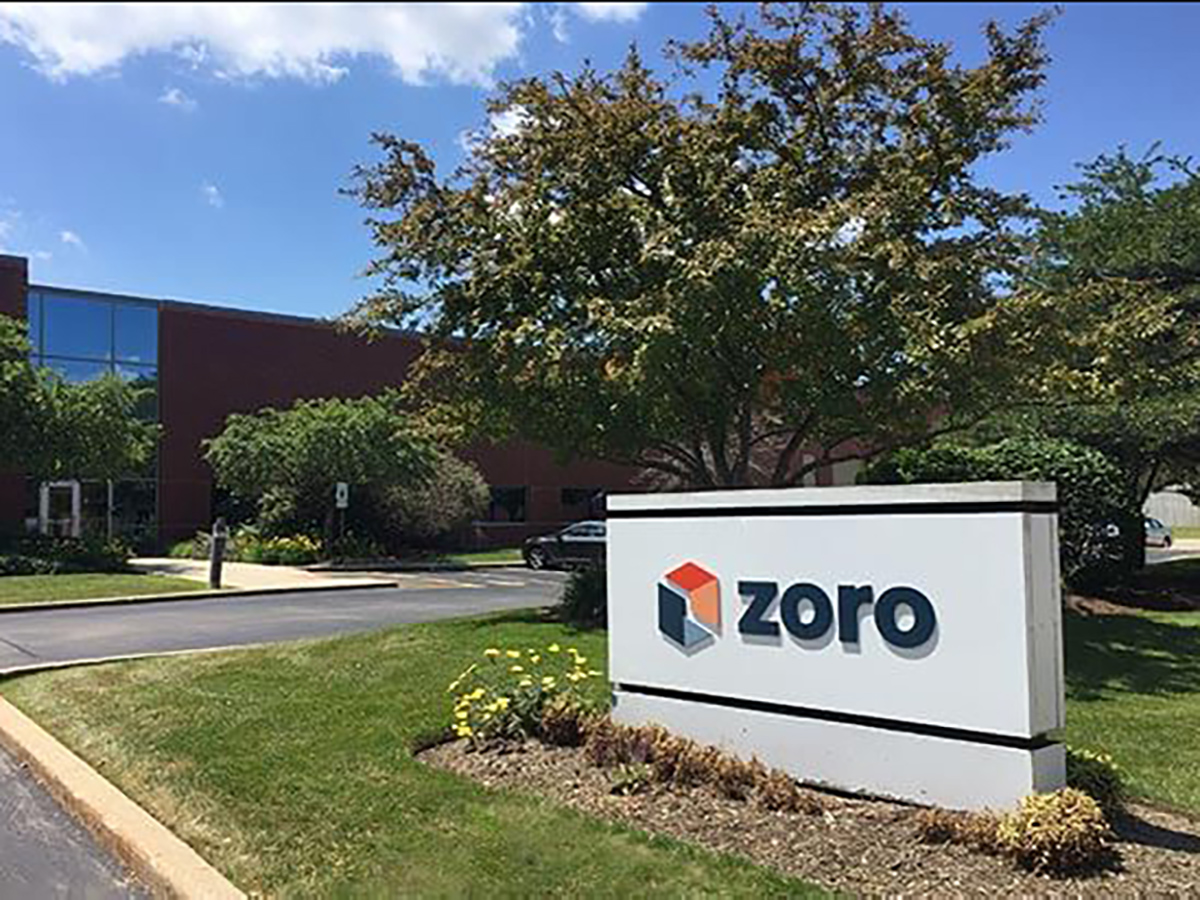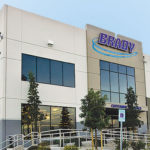MDM is providing this Premium content for free so that everyone can access important information about the ongoing impact of the coronavirus on distribution. For access to more content like this in 2021, sign up for MDM Premium.
Zoro merchandises its nearly 4 million products thanks to help from its ‘behind the scenes’ partnerships with a variety of distributors, from small businesses to larger outlets, operating in conjunction with a range of online channels — except Amazon.
Over the years, Zoro has expanded from its original location in the Chicago suburb of Buffalo Grove, Illinois, to two additional offices, in downtown Chicago and Janesville, Wisconsin. The investments the e-commerce industrial and business supply distributor made in technology to connect its campuses are paying off in spades now that all but three employees are working from home as the country deals with the COVID-19 pandemic. And the subsidiary of W.W. Grainger is not just expanding its employees’ work options. Zoro is also partnering with a growing number of distributors to bring customers nearly 4 million items.
MDM spoke with President Kevin Weadick about what other distributors can expect from working with Zoro, how the company is handling the effects of the coronavirus, and the type of distributor Zoro is looking to partner with.
MDM: How would you describe Zoro’s relationship with other distributors?
Weadick: What we’re trying to do is create a place where business customers — primarily small businesses — can find anything that they need to help keep their business up and running and operating. We don’t go to market via a sales force. We go to market primarily through digital channels for customers who are looking online to find the products they need. What we’re seeing is this convergence of business buyers starting to expect more consumer-like experiences. And so we’re trying to position ourselves to capitalize on that and meet small business customers where they’re looking for the products they need to keep their facilities operating.
As for our relationship with distributors, many distributors have a desire to participate in e-commerce trends. But the barriers to being successful there can be at times very significant. How do you get a consumer-like look, feel, experience for your website? How do you invest in digital marketing? What channel partners can help you create awareness for your product assortment? Zoro’s very good at doing those things.
Zoro provides distributors the opportunity to take their assortment and merchandise it digitally. We give our partners access to channels where they’re probably otherwise unlikely to be successful. That allows Zoro to introduce itself to customers and merchandise more of our partners’ products to them. We then create value for small business customers by becoming a one-stop shop for all their needs. It’s a little bit unique.
The value prop for other distributors is we look to them as a source of supply for product. And then Zoro owns the customer experience. We own marketing our partners’ products. We try to keep the customer experience simple by having a single listing for each item we sell and focusing on the brand for that item. So, if we were buying Post-It Notes through a distribution partner, we would actually just say that the product is from 3M. This is different from a marketplace where you can have multiple listings for the same item. We try to consolidate all that and have one simple experience for the customer.
When we’re procuring a product from a distributor, we receive the order from the customer, we tender that order back to the distributor. The distributor then would ship on our behalf to the customer. They would do some light Zoro branding on that shipment. Usually a packing slip that mentions Zoro and a shipping label that mentions Zoro along with a brown box. The reason for that is to ease the customer’s identification of the shipment, since they associate their purchase with Zoro.
MDM: What type of distributor are you looking to partner with? Those who don’t have an online presence themselves?
Weadick: It might be a distributor that doesn’t have an established online presence today, or it could be a distributor that tends to be a full-service distributor that sells through a sales force and they have a pricing structure that’s based on a negotiated series of discounts with larger customers. We tend to have a very simple and transparent pricing structure. Every customer gets the same price. We price to be relevant in the markets and the channels that we participate in. Some distributors would find that their existing pricing, where they’re really more of a premium service model, isn’t as relevant for a small business looking online. Since these are customers that they can’t cover efficiently with a sales force, we present an opportunity for them to reach those customers and generate profitable scale for their business.
MDM: You have a ‘work with us’ form on your website, is that the main way that you bring in distributor partners?
Weadick: We have a Business Development Team, led by Tracy Buelow, along with a Category Management team. These two teams do outreach to distributors and manufacturers. Their goal is to establish partnerships for Zoro. In establishing a commercial relationship with a distributor, we first ask that they provide us information about the products that they would like to list through Zoro. We then merchandise those products on our website, and market them through the channels we participate in, such as Google or Bing as search engines, or through certain marketplaces. We don’t participate in the Amazon marketplace, but we participate in all the other marketplaces in the U.S.
MDM: Do they pay a flat fee, per SKU? How does that work?
Weadick: They determine what they think is a cost that they can sell to us at — they’re essentially defining their own margins. An example would be, they would sell an item to us and then we would put a markup on top of that item. They’re defining what they think is a reasonable cost to charge to Zoro, understanding that we’re going to own the selling, marketing and customer service costs associated with that transaction. The manufacturer or distributor also is required to cover a contribution margin for their business and their costs of sale, which for them is usually the physical distribution of the product.
We agree to pricing terms, and then when we receive an order from the customer, we forward that to them for fulfillment. Establishing lead times is part of the process as well. Our customers expect quick fulfillment so we try to encourage our partners to ship same day or next day.
MDM: What is your relationship with W.W. Grainger?
Weadick: We’re a wholly owned subsidiary of Grainger. We operate with Grainger much the same way we operate with other distributors, which is to say that we take a list of their assortment, we merchandise that assortment on our website. We price that assortment for the channels that we compete in. When we receive orders from customers, much like we would with any other distributor, we pass that order back to Grainger for fulfillment on our behalf. We operate independently, so we don’t share customer information.
We find that there’s not a lot of overlap. Grainger tends to provide a high-touch solution with significant value-added services, which of course, includes a salesforce, along with services such as technical support, inventory management support. Those are things we don’t do at Zoro. Typically, the customers that Grainger engages with tend to be large- and medium-size businesses, while Zoro tends to be small businesses.
MDM: Do distributors who work with you have to be tied into any of your technical operating systems?
Weadick: Typically, they would share information with us on both their product and then, on a daily basis, share product availability information with us. And then we use that information to determine how to best route the order. Then we just place a purchase order with them, much like any other business with an understanding of and agreement on delivery times.
We’re capable of receiving availability and product information in a variety of formats. Anything from an API, which is essentially where we can have our computer talk to their computer, or if someone wants to send us a spreadsheet, we can effectively work with that information and format as well. For purchasing, we use EDI.
MDM: What percentage of your inventory is from other distributors?
Weadick: We merchandise about 1 million items through Grainger and we have nearly 4 million items available on Zoro.com right now. So, we’re procuring a significant number of items from outlets other than Grainger.
MDM: How are you working to reach business customers in a more consumer-oriented way?
Weadick: One of the things we’re trying to do is create brand awareness with target customers to help them understand what Zoro can do. We’ve done some radio advertising, a lot of podcast advertising, we do a lot of digital branding advertising, YouTube, different channels. We’re trying to create awareness for our brand.
MDM: Do you encourage your distributor partners to advertise that they are a partner of Zoro? Or is the relationship more behind the scenes?
Weadick: Most of our distributor partners would prefer to remain behind the scenes. To avoid confusion for the customers, typically we don’t mention them and they don’t mention us. There are certainly some master distributors where their role is effectively to purchase and sell into distribution. Some of those partners may share partnership information with other people. But most of our distributors are also selling to their own customer bases. And so, we keep more of an arm’s length distance from them.
MDM: Are the distributors themselves ever your customers?
Weadick: Yes, absolutely. We have a distributor that might sell office supplies and they have a customer that needs things outside of office supplies. So many of them use Zoro to procure and then resell that product to their customers. We definitely serve both ways. We get assortment from a number of distributors and then because we have access to 4 million items, we’re able to provide other distributors the opportunity to quickly find items that their customers need but that they don’t typically sell. We have a reseller program for distribution partners that allows them to engage with us in a slightly different way than a typical customer might. We can help them with ease of order, administration and some of those types of things.
MDM: Is Amazon your most direct competitor? Who else do you see as competitors?
Weadick: We don’t just compete against Amazon. It’s a very broad set of potential competitors. We compete with anyone that is active in trying to generate demand in digital channels. We’ve chosen not to partner with Amazon. We certainly see them in different channels, but because we compete across so many different product categories, we compete with really anyone that is using e-commerce and digital marketing to try to attract customers to their website.
MDM: How do you handle pricing negotiations with distributors?
Weadick: We understand that prices can change in the marketplace. We agree upfront with distributor partners on a cadence with which they can review price and send us updated information. Our goal is to make sure that we have a healthy partnership; that Zoro can be relevant and competitive in the market and that our distributor partners feel like this is a positive channel for their business. Generally, that’s just part of the initial supplier onboarding process. We create a supplier agreement letter where we stipulate in advance with both parties what we think the right terms are that make commercial sense for both businesses.
MDM: On the coronavirus, you mentioned all but three of your employees are working from home. Can you talk about the impact that you all have been feeling and how you’re dealing with it?
Weadick: First, our thoughts are with everyone affected by the coronavirus.
In terms of our response to this, we’re trying to make sure that our website accurately reflects the promises that we make to customers. We spend a lot of time working with our supply partners to understand their product availability. That’s been really dynamic. A lot of our response to the pandemic has been, how do we make sure we understand what the supply is? And how do we live up to the commitments that we make? How do we create a positive experience for our customers? We want to be as accurate as we can.
We are definitely seeing a lot more visitors to the website looking for specific product categories. How do we make sure that we can accurately tell those customers what we’re capable of doing from a fulfillment standpoint? In some cases, that’s meant saying, ‘We’re out of stock and we’re not going to take back orders.’ Because the lead times for some of these items are so uncertain. In other cases, that means we’ll message that the item is on a long-term back order and we will accept back orders. And then in other cases, it doesn’t really impact us too much. For example, we sell a lot of hand tools. We haven’t seen implications that have limited our ability to fulfill customers’ orders for product categories that are unrelated to the pandemic.
MDM: How has the transition to the ‘work from home’ orders been internally?
Weadick: Every company is probably challenged to figure out, how do you create the right environment for people now that they’re all working from home? We already had made investments in different collaboration tools because we had three different, separate offices and those collaboration tools can be leveraged from home. What we did was really leverage those things on steroids. We already had people who might work from home one day a week and roughly 40% of our call center agents were already working from home before this.
We shifted the rest of the team members who worked in the call center and asked them to start working from home. That meant some modest investments in technology to allow them to feel like they can be more productive in a home office situation. I would say that’s gone fairly well, but it’s certainly a challenging time for all of our team members. We understand that what ‘working from home’ means can vary significantly from one person’s situation to another. We’ve created opportunities to shift schedules and similar things like that to maintain productivity and remain an active contributor to the business. That said, we also recognize that maybe now children are at home because the schools are closed. We try to be flexible with things our team members are facing.
MDM: Is there anything else, speaking directly to distributors, that you would want to say as far as Zoro’s value proposition for them?
Weadick: We can help them profitably reach customers that they might not otherwise have access to, and we can help them effectively participate in channels that they may not participate in today. We provide an opportunity for them to work with a strong partner that really prides itself on delivering a good customer experience through a healthy relationship between them and Zoro.
Related Posts
-
Let the computer do some of the work by conducting a virtual pilot to sanity…
-
The seasonally adjusted Fastener Distributor Index (FDI) for September was 52, up from 49.2 in…
-
In yet another strategic move, Las Vegas-based JanSan distributor Brady adds Kerr Paper & Supply…






